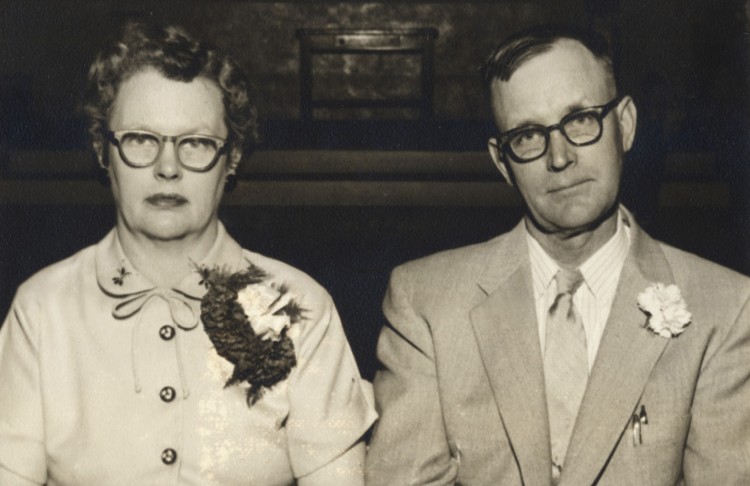
My Grandma Albrecht was an indefatigable snoop. Born in 1901, she married my grandfather when she was 18, and in 11 years they produced seven children—who in turn produced 25 grandchildren. Grandma not only knew all our birthdays by heart, but could tell you who had remembered (and forgotten) hers. She kept up with everything that went on in her little Iowa town, from who was having goiter surgery to who’d just been hired down at the popcorn factory. We attributed her nosiness-bordering-on-meddling to boredom and a lack of intellectual stimulation. Grandma had an eighth-grade education but a first-rate mind.
My mother, Grandma Albrecht’s eldest daughter, did not inherit this gene for snoopiness. In her late 80s, as Grandma grew reliant on others for the scoop, Mom’s lack of interest in other people’s lives made for some disappointing visits. But Mom knew how to exploit Grandma’s appetite for gossip when the situation demanded it.
Once, while running errands in Grandma’s Oldsmobile 98, my mother had a little fender bender. She broke the news to Grandma and then deftly segued to the revelation that a distant relative and his wife were divorcing—he’d taken up with a couple of women from Sioux City. Grandma was so floored by this windfall that she forgot all about the dings in her car.
Nowadays, on those rare occasions when I see any of my maternal cousins, they invariably tell me I look like Grandma Albrecht. The resemblance, I’m afraid, doesn’t stop with our deep-set eyes and thick ankles.
From the time we first begin planning an issue of Vanderbilt Magazine to the day we go to press, it’s the trajectories of other people’s lives I find most compelling. Vanderbilt has 125,000 living alumni and more than 23,000 employees. Being the editor of Vanderbilt Magazine is a bit like reading Tolstoy: Characters put in an appearance, then recede from view until a crucial development in Chapter 47 flings them back into the heart of the story.
I remember Linda Norman, the School of Nursing’s new dean, from my days editing The Vanderbilt Nurse, and M. Eric Johnson, the Owen Graduate School of Management’s new dean, from my Owen Manager editorship. Both were then faculty members; now it’s exciting to watch them step into top spots. Learn more about the new deans.
There’s a vicarious thrill in watching student Michael Pollack’s onstage triumph with Billy Joel or in peering into the lives of Vanderbilt physicians who, as writer Kathy Whitney says, “endure danger, political strife, homesickness, language barriers, and substandard living and working conditions for the greater good” (see page 36).
On the subject of fascinating lives, I can’t resist a plug here for Professor Joel Harrington’s new book, The Faithful Executioner, which we mention briefly in our summer reading section. I purchased the book as a gift but have yet to let go of it. Harrington’s exploration of the human condition and his mastery of narrative have me rooting for the title character. In 1500s Germany, Frantz Schmidt’s father was forced to become the town’s executioner. It became the family line of work, and Frantz in turn tortured and executed hundreds of criminals on behalf of the state. The work paid well, but Schmidt and his family were pariahs in the community.
Check out additional reading suggestions on our website. Then, if your grandmother is still around, go visit her or give her a call or friend her on Facebook. And be careful if you drive her car.
—GAYNELLE DOLL, EDITOR